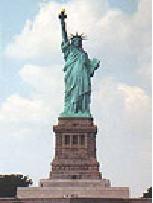|
|
|

|
View this page in:
Nonimmigrant Visas Processing
Visitor's or Tourist Visa (also called B-1 / B-2 or B1/B2 visa)
Visitor's or Tourist Visa (also called B-1 / B-2 or B1/B2 visa)Visitor's or B-2 visa is appropriate for activities such as, for example:
Business Visitor's or B-1 visa is appropriate for someone who comes to the USA for such activities as:
To obtain a B-1 or B-2 visa, an applicant must show (and prove it to the consul during the interview process) that:
Note: There is no specific or all-inclusive list of documents which must be submitted to prove each of these points. However, a good immigration attorney can suggest the correct list of documents to prepare for your visa application. Please keep in mind that the consul makes decision to grant or deny non-immigrant visa application not only on the documents submitted, but based on the interview and your presentation. A good immigration attorney can help you to prepare for the interview. We have helped a number of our clients to successfully obtain Visitor's or Student Visas in the past, and would be glad to guide you through this process. Note: The length of the validity of the visa (expiration date stamped on a visa itself) does not equate to a length of authorized stay in the USA. When you enter the United States, in the port of entry you will be inspected and admitted to the USA. The officer will determine the amount of time you are permitted to remain in the USA and will issue you an I-94 card. Usually, a visitor on a B1 or B2 visa is authorized to remain in the USA up to 6 months. It is possible to apply for an extension, usually, not more than one extension can be granted (for maximum term of additional 6 months). However, an applicant must show compelling reasons for extending his temporary stay in the USA, funds available to pay all living expenses for additional 6 months, and that he has no intent to abandon his foreign residence. Usually, a person entering the USA on a Student visa is issued an I-94 valid for the "Duration of Status" (as long as he remains in valid student status). Student Visa (or F-1 or F1 visa)To apply for a Student or F-1 visa, an applicant can start preparing 12 to 18 months in advance before the beginning of education in the USA. When applying for a Student visa, an applicant must submit form I-20, SEVIS receipt, DS-156, DS-158, DS-157, if applicable, copy of TOEFL score, documents verifying applicant's ties to his native country; documents verifying that a prospective student has sufficient funds to pay for education in the USA; etc. Visa DenialsA nonimmigrant visa is usually refused or denied under Section 214(b) of the Immigration and Nationality Act. In particular, INA section 214(b) contains so called "Presumption of immigrant intent" which states: Every alien shall be presumed to be an immigrant until he establishes to the satisfaction of the consular officer, at the time of application for a visa, that he is entitled to a nonimmigrant status under section 101(a)(15). To qualify for a non-immigrant Visitor's or Student's visa, an applicant must meet the requirements of INA Sections 101(a)(15)(B) or (F). Failure to do so can result in refusal of a visa under INA Section 214(b). The most frequent basis for such a refusal concerns the requirement that the prospective visitor or student possess a residence abroad that he has no intention of abandoning. Applicants prove the existence of such residence by demonstrating that they have strong ties abroad that would compel them to leave the U.S. at the end of a temporary stay. "Strong ties" test differs from country to country, city to city, individual to individual. "Ties" are the various aspects of life that bind person to his country of residence: his possessions, employment, social and family relationships. Applying for a non-immigrant visa is not only a documentary process. During the visa interview, an applicant must prove his non-immigrant intent to satisfaction of the consular officer. Documents alone cannot fully establish applicant's intentions. Therefore, a visa interview is a very important moment in whole non-immigrant visa application process. Note: the money that you paid as a visa application fee is non-refundable. Note: any applicant has better chances to have his nonimmigrant visa approved when applying from his native country (not in another country). Please note that the USA law places this burden of proof on the visa applicant. We were able to help many clients to successfully obtain Visitor's or Student Visas in the past, and would be glad to guide you through this process. The information provided on this website is for general informational purposes only, and is not a legal advice. This information is provided for general public, and is from general sources. We can provide you legal assistance in the process of applying for any nonimmigrant visa, and can advise you on all related legal matters. Please call or email us if you would like to schedule a telephone consultation. |
You can pay us securely through PayPal to Attorney@law-visa-usa.com or
by clicking on the button below
All rights reserved. Smal Immigration Law Office.